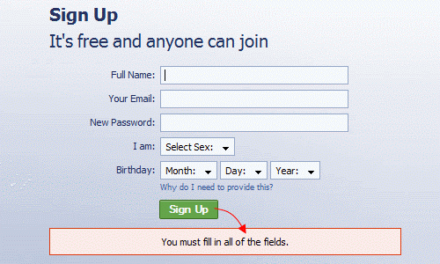The reading level for this article is All Levels
You’ve decided that you need a better customer relationship management system (“CRM”) for your small business. You need a good place to store and access your customer information just like bigger companies. You want to be able to generate meaningful reports and manage your marketing campaigns. But there are so many options in all price ranges. So how do you choose the best CRM software for your company?
What is CRM, exactly?
In its simplest form, CRM is a database where sales and marketing teams store critical account data such as contact & account information, lead source, sales activity history, purchase history, and marketing campaign data and projections. CRM can also be an important reporting tool. For example, you can use it to
- Generate revenue projections for a product, a sales rep, and your company as a whole
- Tie revenue to the original marketing campaign
- Pull up lists of leads and activities by sales rep
- View the number of leads you have at each step in your sales process
- Track your progress against your goals
- Manage marketing campaigns
- Capture leads from your website
- Minimize the time your team spends creating manual sales & activity reports
Choosing the right CRM
When you choose the right CRM software, you gain knowledge and power to keep your team on track and measure progress against goals.
- Best case: Your CRM matches your marketing, sales, customer service and retention strategies. It’s easy to use and provides reports that eliminate the need to generate tedious manual reports. It may integrate with other software like accounting and inventory, enabling your entire team to view important data and reports in real time.
- Worst case: You don’t have a solid system for managing customer information; it’s kept in various files or databases that aren’t linked. It’s difficult and time-consuming to create revenue projections, sales reports and marketing campaign reports. The result: lost revenue, productivity and opportunity. Even worse: you use paper files.
How to compare CRM software
The key to selecting the right CRM is to analyze your needs.
- Decide what information your team should be able to access and how they’ll use it.
- Identify who needs to use the system and where they’re located (i.e. in different offices).
- Determine what reports you’ll want to generate, particularly your revenue and pipeline reports.
- Identify the marketing programs you’d like to be able to run and how that information can help you better manage your accounts.
If you’ve outgrown your current system, you may be able to purchase add-ins to give your existing system more power. You may also decide to evaluate new systems to give you the true functionality you need.
Select a CRM vendor
Once you’ve defined your requirements, look for a CRM package that meets your needs. Remember that many systems come in several versions; you can start with a basic version and upgrade as you grow, but make sure the upgrade process is seamless.
Manage CRM implementation
When you’re nearing the end of your selection process, get ready for implementation.
- Create an implementation team.
- Develop a schedule for key tasks: configuring fields, migrating data, creating reports, training users.
- Create a solid training plan.
- Launch the software.
- Do followup training to ensure that your team uses the software as planned. Most implementations fail because employees don’t use the software properly.
- Gather feedback and modify the software configuration as needed; make it as intuitive and powerful as possible.
There are plenty of consultants who can help you through this process. But you can save a lot of time and money by educating yourself. We’ve created a free CRM selector tool to help you define your needs and narrow your vendor list — just email us now and we’ll send it to you.


